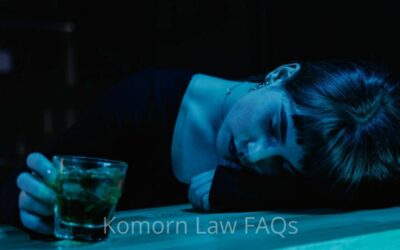Squatters
Squatting, in one definition is the unauthorized occupation of a property, can be a frustrating ordeal for property owners in Michigan. Understanding the relevant laws and procedures is crucial for regaining possession of your property.
Squatting vs. Adverse Possession: Key Differences
Michigan law differentiates between squatting and adverse possession. Squatting refers to the unlawful occupation of a property without the owner’s consent. In contrast, adverse possession allows someone who isn’t the legal owner to gain ownership rights under specific circumstances, as outlined in MCL § 600.5801. To establish adverse possession, an occupant must demonstrate:
- Continuous occupancy: Occupying the property for at least 15 consecutive years (MCL § 600.5801(1)).
- Color of title: Possessing a document, though potentially flawed, that suggests ownership (MCL § 600.5801(2)). However, simply paying rent or utilities doesn’t constitute color of title.
- Payment of property taxes: Paying property taxes for at least ten consecutive years (MCL § 600.5801(2)).
Open, notorious, and hostile possession: Occupying the property openly, demonstrably, and claiming it as their own, even if mistakenly (MCL § 600.5801(3, 4)).
The burden of proof lies with the squatter to establish adverse possession. Notably, Michigan courts have interpreted these requirements strictly, making it difficult for squatters to gain ownership rights.
News Articles and Information
MML-Michigan Communities and Squatting: What You Need to Know (PDF)
Here’s how homeowners can fight against squatter insanity
And now for something completely different…
Self-Help Eviction: A Unique Feature in Michigan
Michigan offers a unique remedy for property owners facing squatters: self-help eviction. Unlike most states, Michigan law allows owners to take specific steps to make the property unappealing for squatters, encouraging them to leave voluntarily.
Important Caveats: It’s crucial to note that self-help eviction has limitations:
No removal of belongings: Owners cannot remove the squatter’s belongings or physically force them out.
Tenant vs. squatter: This method only applies to squatters, not tenants with a valid lease agreement. Evicting tenants requires a formal eviction process through the court system.
Potential legal repercussions: Improper use of self-help measures could result in legal action from the squatter. Consulting an attorney before taking any steps is highly recommended.
Getting Rid of Squatters
If you discover that someone unauthorized is occupying your property, contact the police. However, be aware that the police may consider it a civil issue and advise you to pursue eviction through the courts. It is important to note that squatting is considered a misdemeanor in Michigan, even if law enforcement may not be fully aware of this fact.
Instead of waiting on or dealing with the police, property owners in Michigan can take action to remove illegal occupants within the limits of the law:
- Kindly request the squatter to vacate the premises within a specified timeframe.
- Notify the squatter that legal measures will be pursued if they fail to comply promptly.
- While the squatter is away from the property, consider changing the locks, securing entry points, boarding up windows, and implementing additional barriers like fences to prevent re-entry.
Client Was Caught With Brass Knuckles – What’s the Law?
Michigan Criminal Laws FAQs Brass KnucklesGetting caught with brass knuckles in Michigan can lead to serious legal trouble. While some states have more lenient laws, Michigan takes a strict stance on these types of weapons. If you or someone you know faces charges...
Resisting an Unlawful Arrest in Michigan
Michigan Criminal Laws FAQs Resisting an Unlawful Arrest in MichiganThe question of whether you can legally resist an unlawful arrest in Michigan is complex, and the answer is generally no, with very limited exceptions. While the idea of defending oneself against an...
Criminal Trespass: Legal Ramifications of Squatting
Squatting in Michigan is considered criminal trespass under MCL 750.553. This statute classifies trespassing as a misdemeanor for first offenses, punishable by fines up to $5,000 or imprisonment for up to 180 days, or both. Subsequent offenses become felonies with steeper penalties.
There are additional trespassing classifications based on the property type:
- Residential property: Trespassing on a single-family or two-family dwelling is typically a misdemeanor.
- Commercial property: Trespassing on commercial buildings, industrial sites, construction zones, or utility property can be charged as a felony.
Property owners who suspect squatting should contact law enforcement. Officers can remove squatters if they lack a legal right to be on the property.
The Law
750.553 Occupancy of building without consent; violation; penalty; exception.
Sec. 553.
Other Articles
Legal Tip – Your Rights During a DUI Stop in Michigan
Komorn Law - Quick Legal TipsLegal Tip: Understanding Your Rights During a DUI Stop in Michigan A DUI stop can be stressful, but knowing your rights is crucial. You have the right to remain silent. You are not obligated to answer questions beyond basic identification....
Judge finds marijuana testing facilities run by ex-cops violated testing results
Viridis Laboratories has faced ongoing allegations of exaggerating THC levels while minimizing the potential risks associated with cannabis.If you are charged with a crime you're part of the State of Michigan family now. Call us - Because you don't want to be a part...
Domestic Violence Conviction Prohibits Gun Ownership
No Second Amendment Rights For YouIf you are charged with a crime you're part of the State of Michigan family now. Call us - Because you don't want to be a part of that family. Komorn Law (248) 357-2550A federal judge in Michigan has ruled that a man with a prior...
Update on Michigan’s Sick Time Act (Small Business Compliance)
Small Business Compliance Accrual Method: Employees accrue 1 hour of paid sick time forevery 30 hours worked, and unused paid sick time rolls over upto 72 hours, or 40 for a small business. Employers may limit theuse of earned sick time to 72 hours, or 40 for a small...
More Posts
Criminal Law FAQs – Traffic Offenses
Michigan Criminal Laws FAQs Traffic OffensesAccording to Michigan State Law (Michigan Compiled Laws - MCL), Traffic Offenses encompass a wide range of violations...
Criminal Law FAQs – Drunk and Disorderly
Michigan Criminal Laws FAQs Drunk and DisorderlyAccording to Michigan State Law (Michigan Compiled Laws - MCL), there isn't a specific statute that solely defines...
Criminal Law FAQs – Drinking Alcohol or Smoking Marijuana and Driving
Michigan Criminal Laws FAQs Operating a Motor Vehicle Under The InfluenceWalking is cool... For fun and excercise. Not because you lost your license. Don't do the crime...
Criminal Law FAQs – Probation Violations
Michigan Criminal Laws FAQs Theft CrimesAccording to Michigan State Law (Michigan Compiled Laws - MCL), a Probation Violation occurs when a person who has been...
Michigan lawmakers want to revive “junk science” roadside drug testing
The Roadside Drug Test...AgainHouse bills 4390 and 4391The proposed House bills 4390 and 4391 would enable law enforcement to administer tests aimed at assessing driver...
Criminal Law FAQs – Theft Crimes
Michigan Criminal Laws FAQs Theft CrimesAccording to Michigan State Law (Michigan Compiled Laws - MCL), Theft Crimes generally involve the unlawful taking of someone...
Criminal Law FAQs – Domestic Violence
Michigan Criminal Laws FAQs Domestic ViolenceAccording to Michigan State Law, Domestic Violence is not a standalone criminal offense but rather a designation applied to...
Criminal Law FAQs – Assault and Battery
Michigan Criminal Laws FAQs Assault and BatteryAccording to Michigan State Law, Assault and Battery are distinct but often related offenses. There isn't one single...
Other Bodily Fluid House Hearing – HB-4391- Update 5-22-25
Michigan House HearingHB-4391 Saliva Test Update 5-22-25Watch the hearing or read the summary.Click here or image below to see videoFYI: Marijuana although voted to be...
Criminal Law FAQs – Marijuana Offenses
Michigan Criminal Laws FAQs Marijuana OffensesFAQ 1: Is recreational marijuana legal in Michigan? Answer: Yes, recreational marijuana is legal for adults 21 and over in...





















